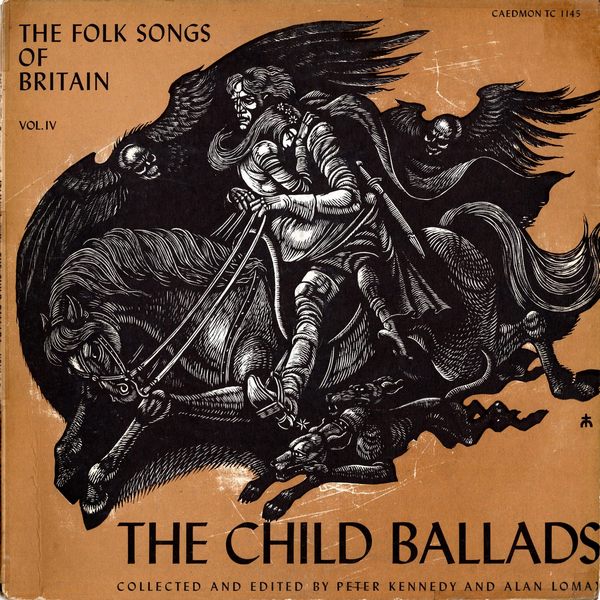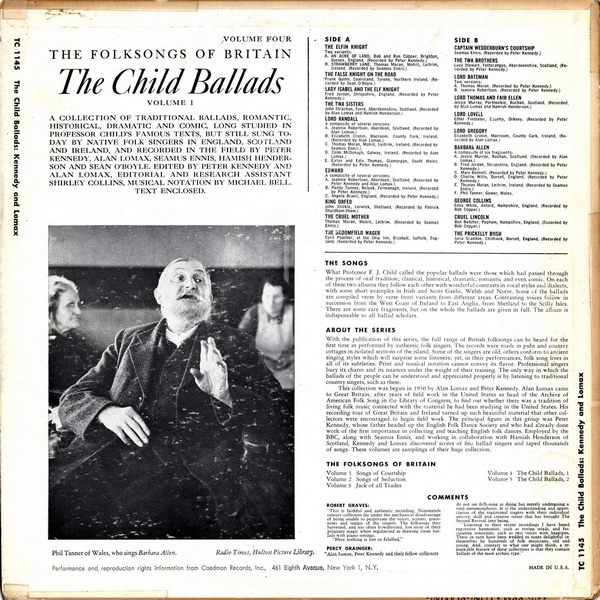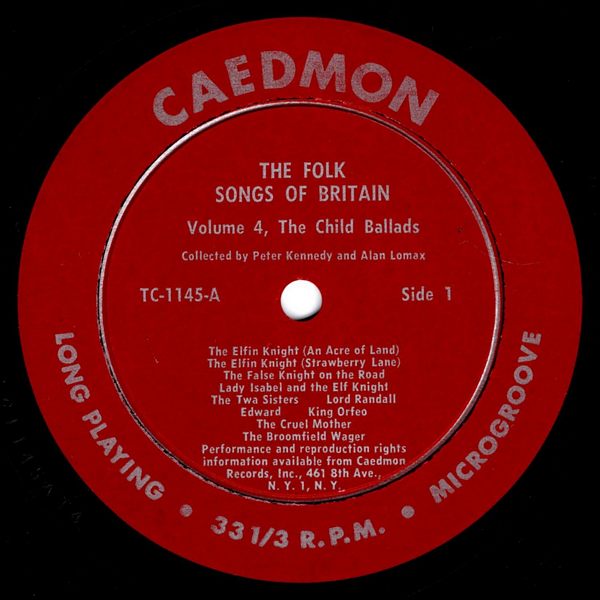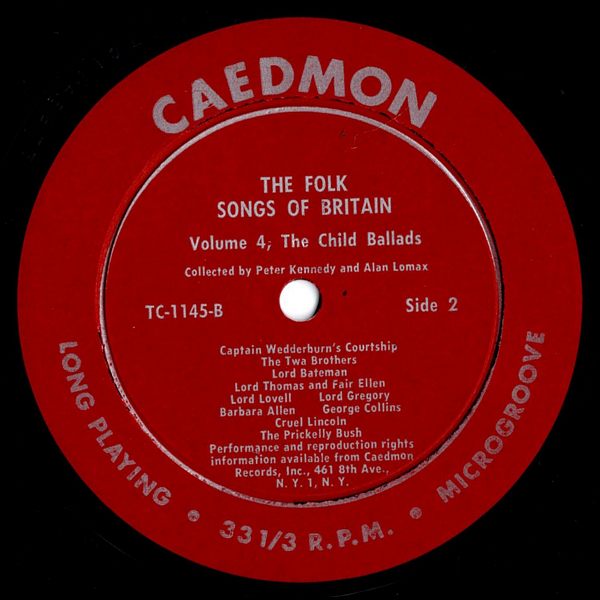

|



|
Sleeve Notes
A collection of traditional ballads, romantic, historical, dramatic, and comic, long studied in Professor Child's famous texts, but still sung today by native folk singers in England, Scotland, and Ireland.
THE SONGS
What Professor F. J. Child called the popular ballads were those which had passed through the process of oral tradition; classical, historical, dramatic, romantic and even comic. On each of these two albums they follow each other with wonderful contrasts in vocal styles and dialects, with some short examples in Irish and Scots Gaelic, Welsh and Norse. Some of the ballads are compiled verse by verse from variants from different areas. Contrasting voices follow in succession from the West Coast of Ireland to East Anglia, from Shetland to the Scilly Isles. There are some rare fragments, but on the whole the ballads are given in full. The album is indispensable to all ballad scholars.
ABOUT THE SERIES
With the publication of this series, the full range of British folk songs can be heard for the first time as performed by authentic folk singers. The records were made in pubs and country cottages in isolated sections of the island. Some of the singers are old, others conform to ancient singing styles which will surprise some listeners; yet, in their performances, folk song lives in all of its subtleties. Print and musical notation cannot convey its flavor. Professional singers bury its charm and it nuances under the weight of their training. The only way it which the ballads of the people can be understood and appreciated properly is by listening to traditional country singers, such as these.
This collection was begun in 1950 by Alan Lomax and Peter Kennedy. Alan Lomax came to Great Britain, after years of field work in the United States as head of the Archive of American Folk Song in the Library of Congress, to find out whether there was a tradition of living folk music connected with the material he had been studying in the United States. His recording tour of Great Britain and Ireland turned up such beautiful material that other collectors were encouraged to begin field work. The principal figure in this group was Peter Kennedy, whose father headed up the English Folk Dance Society and who had already done work of the first importance in collecting and teaching English folk dances. Employed by the BBC, along with Seamus Ennis, and working in collaboration with Hamish Henderson of Scotland, Kennedy and Lomax discovered scores of fine ballad singers and taped thousands of songs. These volumes are samplings of their huge collection.
COMMENTS
Robert Graves: "This faithful and authentic recording. Nineteenth century collectors lay under the mechanical disadvantage of being unable to perpetuate the voices, accents, grace-notes and tempo of the singers. The folksongs they harvested, and too often bowdlerised, lost most of their poignant magic when regularised as drawing-room ballads with piano settings. Here nothing is lost or falsified."
Percy Grainger: "Alan Lomax, Peter Kennedy and their fellow collectors do not see folk-song as dying but merely undergoing a vital metamorphosis. It is the understanding and appreciation of the traditional singers with their individual artistry, skill and creative talent that has brought The Second Revival into being.
"Listening to their recent recordings I have heard expressive harmonies, such as roving triads, and fascinating sonorities, such as two voices with bagpipes. These in turn have been wedded to tunes delightful in themselves by hundreds of folk musicians, old and young. And, contrary to what one might think, a remarkable feature of these collections is that they contain ballads of the most archaic type."